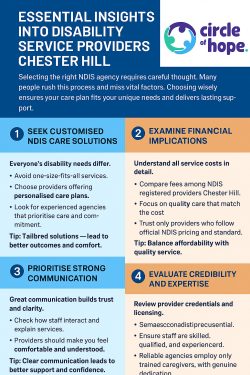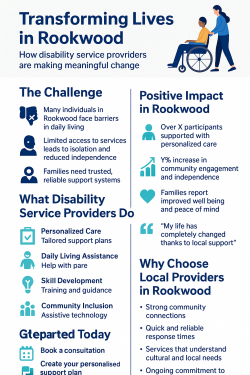Tips for Preparing a Loved One for NDIS Respite Accommodation
Preparing a loved one for NDIS respite accommodation can be a big step for families. Respite care gives both the individual and their caregivers a break while ensuring the person receives safe and supportive care. With the right approach, this transition can be smooth and positive.
1. Talk Openly About the ChangeCommunication is key when preparing someone for NDIS respite accommodation. Explain what respite care is and how it benefits them. Use simple words and reassure them that they will continue to receive care and support while they stay at the respite service.
2. Visit the Facility BeforehandFamiliarizing your loved one with the environment can reduce anxiety. Take a visit to the NDIS respite accommodation together. Show them their room, common areas, and introduce them to the staff. This helps them feel more comfortable and less overwhelmed.
3. Involve Them in the PlanningWhenever possible, involve your loved one in decisions about their stay. Let them choose personal items to bring, such as favorite clothes, photos, or comfort items. Feeling a sense of control helps make the NDIS respite accommodation experience positive and reassuring.
4. Maintain RoutinesMaintaining familiar routines can help ease the transition. Share information about their daily habits, meal preferences, and hobbies with the respite care staff. Consistency makes it easier for your loved one to adapt to NDIS respite accommodation without stress.
5. Encourage Social InteractionMany NDIS respite accommodation services offer group activities and social opportunities. Encourage your loved one to participate at their own pace. Social engagement can make the experience enjoyable and help them feel more connected.
6. Keep Communication OpenStay in touch during their stay. Regular phone or video calls reassure your loved one and allow you to monitor their comfort. Open communication helps address any concerns promptly, making NDIS respite accommodation a smoother experience.
7. Prepare EmotionallyIt’s normal for both caregivers and loved ones to feel anxious. Understanding that respite care is temporary and supportive can ease emotional stress. Positive reinforcement and reassurance make the transition to NDIS respite accommodation much easier.
By following these tips, families can help their loved ones feel confident and supported when moving into NDIS respite accommodation. A little preparation goes a long way in ensuring a safe, comfortable, and positive experience for everyone.
Learn More: https://www.phomecare.com.au/2021/11/20/short-term-accommodation-respite/






































































